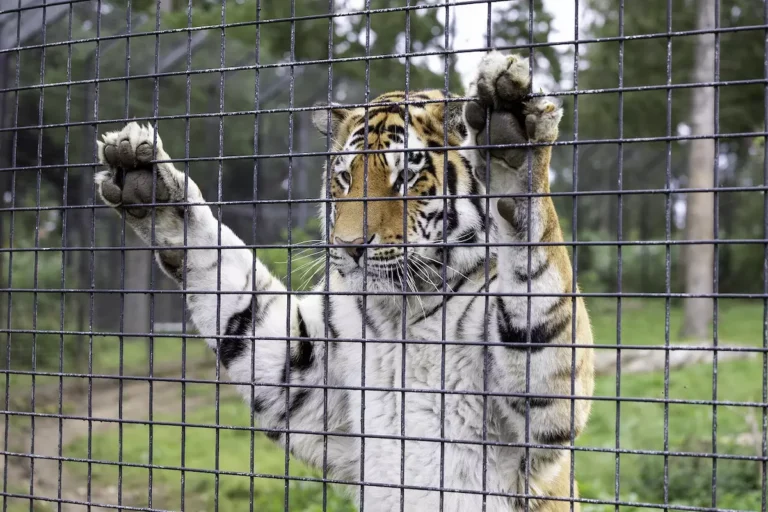
Big Cat Public Safety Act Passed. Now What?
Julie Marshall
National Communications Coordinator
We won a crucial battle for big cats. Now it’s time for enforcement.
Roadside zoos and sham sanctuaries like the one featured in the Netflix series “Tiger King” can no longer use and abuse baby tigers and lion cubs, mountain lions and leopards as props to make money with cub-petting operations.
This is in large part thanks to a joint effort between Animal Wellness Action and Carole and Howard Baskin of the Florida-based Big Cat Rescue — a collaboration that led to enactment of a law that prevents dangerous and cruel big cat ownership and exhibitions.
“After a decade of legislative work on the bill and tremendous publicity for the issue, cub petting will soon become a thing of the past in the U.S.,” said Marty Irby, executive director at Animal Wellness Action, who tirelessly lobbied 150 Republican lawmakers to get this bill through.
But only if we keep the heat on prosecution.
“While we celebrate the major accomplishment of passing the Big Cat Public Safety Act into law, it is only meaningful if there is enforcement,” said Howard Baskin. “We plan to do everything we can to assist the U.S. Fish & Wildlife Service and the Department of Justice in enforcing this law. We have already had very productive initial meetings with both agencies.”
“While we celebrate the major accomplishment of passing the Big Cat Public Safety Act into law, it is only meaningful if there is enforcement,” said Howard Baskin..
The Big Cat Public Safety Act amends the Lacy Act to limit the breeding and possession of big cats. With this new law, many things will happen and need to happen both short and long term, and Animal Wellness Action will be working with the Baskins in overdrive to make sure the new law with its new regulations is enforced.
Here is what needs to happen going forward, with included updates:
Anyone who currently possesses any big cats who is not a USDA licensed exhibitor will be compelled within 180 days of the signing of the bill (December 2022) to register them with the U.S. Fish and Wildlife Service. If they don’t, they face up to a $20,000 fine or five years in prison.
Our U.S. Department of the Interior will need to get busy now writing new regulations that create instructions and a way for these unlicensed owners to register their animals quickly.
“We will be working to help the agencies identify the unlicensed private owners who are now required to register their animals with USFWS by asking supporters to report to us anyone they know or hear of that has big cats,” Baskin said. “The goal with respect to the private owners is not to ‘catch’ them violating the law. It’s to assist in bringing them into compliance so first responders will have a way to know if they might encounter a dangerous big cat when responding to a call for some other reason.”
- Those individuals and entities who do possess a U.S. Department of Agriculture license to exhibit the animals must keep the animals at last 15 feet from the public if the animals are not behind a permanent barrier. This requirement of the law is what puts an end to abusive practice of charging the public to pet young cubs or take photos with them.
- This loss of direct contact in big cat exhibits will also reduce what is called “speed-breeding,” which drives the cub-petting trade, because as the Netflix series explained so well, when tigers age, they may be killed by unscrupulous exhibitors and replaced by new cubs that hold the most value for profits.
“We will be asking supporters and law enforcement around the country to report any exhibitors they discover offering cub petting or offering photo ops in violation of the 15-foot requirement in the law,” Baskin said.
Breaking News
The Big Cat Public Safety Act amends the Lacy Act to limit the breeding and possession of big cats. With this new law, many things will happen and need to happen both short and long term, and Animal Wellness Action will be working with the Baskins in overdrive to make sure the new law with its new regulations is enforced.
